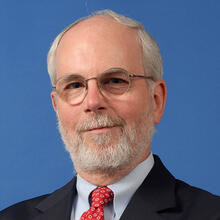Statement by Chad Stone, Chief Economist, on the February Employment Report
Today’s employment report adds to the mounting evidence that the economy is too weak to avoid more unemployment and shrinking job opportunities in the months ahead. Rather than wait too long, as it has in similar situations in the past, Congress should quickly enact temporary extended unemployment insurance (UI) benefits to support the economy and to assist workers who have sought work for more than half a year and exhausted their regular UI benefits.
The report shows that the labor market weakened further in February, and a growing consensus of forecasters, including the Federal Reserve, sees further softening in the near term. As Federal Reserve Chairman Bernanke said recently, the risks to the economy are on the downside and include the possibility that the labor market may deteriorate more than is now anticipated. The apparent hint of good news from the edging down of the unemployment rate is illusory, because it was part of an overall decline in labor-force participation: the proportion of the population with a job actually fell in February, and payrolls shrank.
Labor market conditions are already harsher, especially for the long-term unemployed, than on the eve of the last recession in March 2001.
- The unemployment rate is higher (4.8 percent compared with 4.3 percent) and most forecasters expect it to rise further in coming months.
- The percentage of the unemployed who have been looking for a job for more than half a year and are still out of work — the group that extended unemployment benefits target, because regular benefits end after 26 weeks in most states — is much higher (17.5 percent compared with 11.1 percent in March 2001).
- Due to these facts, the long-term unemployment rate is nearly twice as high.
- Labor force participation is lower. Moreover, 4.8 million people who are not in the labor force say they want to work (13 percent more than in 2001). Many of them would presumably be looking seriously for a job if they thought they had better prospects of finding one, in which case the unemployment rate would be higher.
Weakness and further deterioration in the labor market are sources of concern not only for the long-term unemployed and their families but for the economy as a whole. Job creation has ground to a halt — there are fewer jobs on employers’ payrolls now than there were three months ago — and the Labor Department’s most comprehensive alternative unemployment rate measure — which includes people who want to work but are discouraged from looking as well as people working part time because they can’t find full-time jobs — has risen almost a full percentage point in the past year and is more than 1½ percentage points higher than it was at the start of the last recession. When workers lose their jobs and then exhaust their unemployment benefits before they can find new jobs, they cut their consumption, deepening the economic downturn.
Congress did not include a temporary extension of unemployment insurance benefits in the recent stimulus package. Quick action would help the people hardest hit by the weakening economy and would boost the economy with one of the fastest acting and most effective forms of stimulus available.
The Center on Budget and Policy Priorities is a nonprofit, nonpartisan research organization and policy institute that conducts research and analysis on a range of government policies and programs. It is supported primarily by foundation grants.
